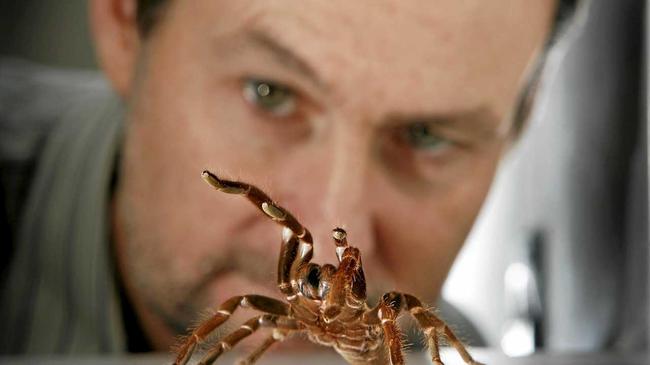How Fraser Island spider venom can keep a heart alive
As soon as a heart leaves it's donor it begins to die, meaning that hearts can only be kept for a few hours before a transplant.

Fraser Coast
Don't miss out on the headlines from Fraser Coast. Followed categories will be added to My News.
JUST months after the benefits of spider venom for stroke victims was revealed, new tests have shown it can help protect hearts too.
And the molecule that offers fresh hope for those with serious health conditions lies within the fangs of Fraser Island's deadly funnel web spiders.
In April, Professor Glenn King, from the University of Queensland's Institute for Molecular Bioscience, said the venom would be used to develop a drug that could inhibit the effects of a stroke.
But after a conversation with a colleague who was also a cardiac specialist, investigations began into whether the same molecule that protected the brain after a stroke would also protect a heart after a cardiac arrest or a during a transplant.
"It was a fortunate discussion," Prof King said.
He said testing was still in the early stages and no tests head been performed on live animals yet, but in the future it could make a huge difference for cardiac patients.
"In that same way we talked about the brain, in the context of a heart attack the lack of oxygen changes the way it metabolises, it becomes acidic."
In the same way the molecule protected the brain from a lack of oxygen, it could protect heart muscle cells, Prof King said.
"The heart transplant data is very strong," he said.
As soon as a heart leaves it's donor it begins to die, meaning that hearts can only be kept for a few hours before a transplant.
Even transporting a heart from Perth to Brisbane takes too long currently.
But the molecule could change all that.
Professor Peter MacDonald from the Victor Chang Cardiac Research Institute had requested some of the molecule to test it.
"He tried it in his models - it protects the heart very nicely," Prof King said.
While the news about its potential benefits for hearts was positive enough, Prof King said there was a possibility it could benefit people with spinal cord injuries as well.


